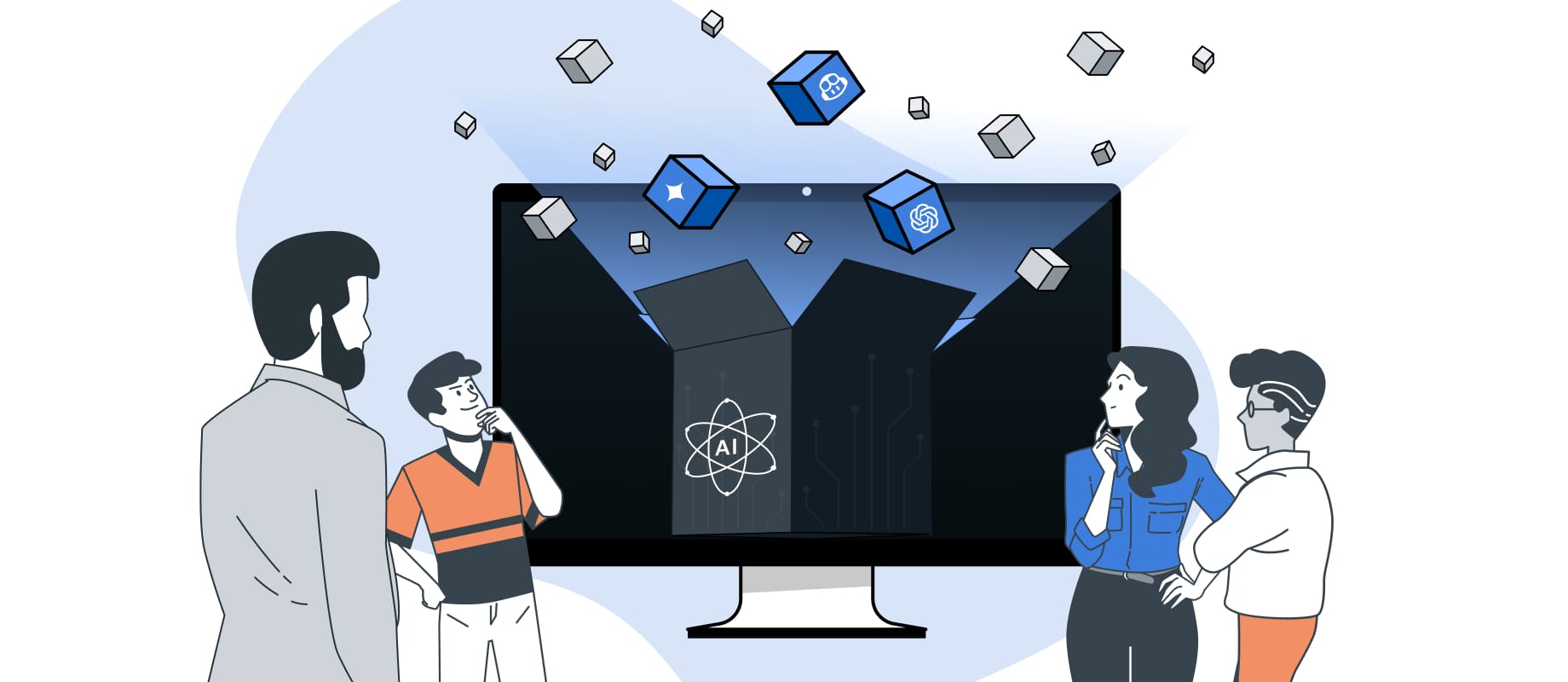
Almost a year has passed since we asked our Xperts about AI Appreciation Day. Since then, a great deal has happened in the AI industry. New AI tools are released almost every month and the first AI software engineer, Devon AI, was even launched on the market in March.
Once again, we asked our Xperts about the current situation. As members of our AI task force, they let us in on the latest developments and venture a forecast. Our series begins with Artur Schiefer, who is not only Head of Software Development and Data Science, but also part of our management team.
 Artur Schiefer
Artur Schiefer
What do you think of the current situation?
At the moment, we are still in the middle of the hype phase. There are many companies that are very interested in working with AI but do not yet have the necessary experience or are just taking their first steps with it. Many are also still at the stage of getting their data ready for training, which is a difficult task. The main task here is to find out what it means in detail to provide a suitable data pool for AIs. Ultimately, this is also a very costly affair with a great deal of effort (consulting, time, energy, etc.).
AI is also currently primarily paid for by investors and not by customers. What the actual price of using AI on an industrial scale will eventually be is currently difficult to estimate. I'm not talking about software for end users on a smartphone or tablet, for example; this will be possible quickly and, in some cases, already is. Anyone who wants high-performance models for industrial applications will certainly pay similar prices in the future as they do today for cloud computing.
Looking specifically at our industry in software development, it is clear to see that AI tools are becoming increasingly powerful. In the future, AI tools will take over many standard tasks from requirements engineering to actual development and acceptance testing, accelerating and improving these processes. In the medium term, however, I don't see AI being able to perform these tasks autonomously. Unless the tasks are relatively simple, humans will still be needed to at least ensure the quality of the AI results.
I also think that product ideas in particular will remain in human hands. Humans are not rational and it is also difficult to judge correctly what will go down well with people. Human intuition cannot be imitated by a machine.
As far as Germany is concerned, there are currently 2-3 relevant AIs (Aleph Alfa, DeepL) that have emerged here. At the same time, there is also a rich start-up scene that is introducing and utilising AI. A rethink has also been noticeable at universities for a few years now. Data science has a much larger part to play than before. For many students who come to us today, data science methods are an integral part of their working methods. One of the reasons for this is that data is still seen as the new gold. This can also be seen in the rapid rise of Python as the language of data scientists. The amount of accumulated data is increasing exponentially and new methods such as machine learning are needed in order to work with it and generate new things. At the same time, the proportion of AI in the field of data science has also increased significantly.
I am reluctant to label classic data science methods and statistics as AI, even if the dividing line is a little blurry. In my opinion, classic data science methods will continue to exist in the future. There are also some examples where the attempted development of AIs has led to much simpler solutions to problems, simply because people have taken a fresh look at data and processes.
You've already given a small glimpse into the future, can you be a little more specific?
I think what we are going through right now is comparable to the phase in which the internet was being commercialised. If someone had asked in the early 1990s what changes it would bring to our everyday lives, 99 % would have been wrong, and I think it's the same with AI today.
As far as software development is concerned, a lot will depend on how these new tools are used. When new tools come onto the market, they also require new skills and a lot of experience from the experts working with them. For example, to recognise for which tasks it is ultimately worth using AI or where the AI-generated solutions need to be reworked. Another major point is that generative AIs in particular have so far only provided a glimpse into the past. Software development will not stand still and will be continuously driven forward by experts. Generative AI will then have to be retrained. If you want to remain competitive, you now need excellent software development that can integrate AI tools into your day-to-day work in a way that adds value.
What do these developments mean for IT companies in Germany?
If I look at our company or software companies in Germany in general, these upheavals naturally give rise to a number of conclusions.
We are currently in the process of familiarising our employees with the use of AI in software development. It is important to provide employees with the appropriate tools and train them in their commercial use.
We have established something like an AI task force in our company. I am also part of this group and together we are defining which AI tools are best suited to our work and customers and how we can integrate them efficiently into our processes. We not only enable our employees to use them, but also create the regulatory framework for their safe commercial use. In doing so, we endeavour to be as close as possible to our employees while also keeping our customers' interests in mind. Shared interests are always the best motivator for creating something new.
Even if precise predictions are difficult to make, AI naturally offers great opportunities for software development. It will be possible to produce professional code much faster. High-quality solutions with proven patterns and architectures will be created at an unprecedented speed. AI knows what has already been solved well and can support software developers with its knowledge. In particular, tasks that many developers find rather tedious, such as storing documentation, API descriptions, debugging or even merging code, will be largely automated by AI tools in the future.
So far, only so-called weak AI exists. It does not have the cognitive abilities of humans. Humans will continue to play a major role in unsolved or new problems. Nevertheless, it is of course exciting when you link the artificial intelligence of different domains with each other and these domains then work together automatically to arrive at a solution.
Where do you see problems in connection with AI?
Like everything, the use of AI has its downsides and a lot depends on how it is used. AI-generated clickbait, spam and phishing mails already exist. Overall, a lot of awareness is needed in society from small to large. Just as there is unfair use of AI, tools are also constantly being developed to protected against it.
Simple tasks that used to be carried out by humans will be taken over by AI tools in the future. If we take a look at the past of digitalisation, we can see that many tasks performed by humans, for example in the office sector, no longer exist today. This development will be driven even further by the synergy effects of digitalisation and AI and will extend to all sectors and their sub-sectors. It remains to be seen how big the cut will actually be for the social groups affected.
At the same time, the use of AI naturally also offers advantages. People are freed from routine tasks and gain completely new perspectives. In terms of software development, AI will initially help to alleviate the acute shortage of skilled labour. The profile of software developers will change, as it already has. For the time being, only humans will be able to solve new challenges in the real world in a digital environment.